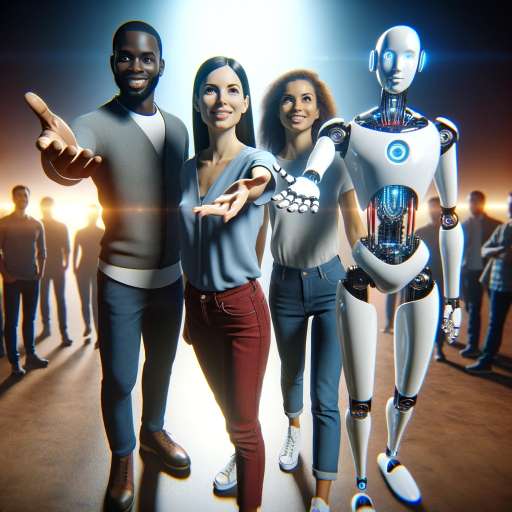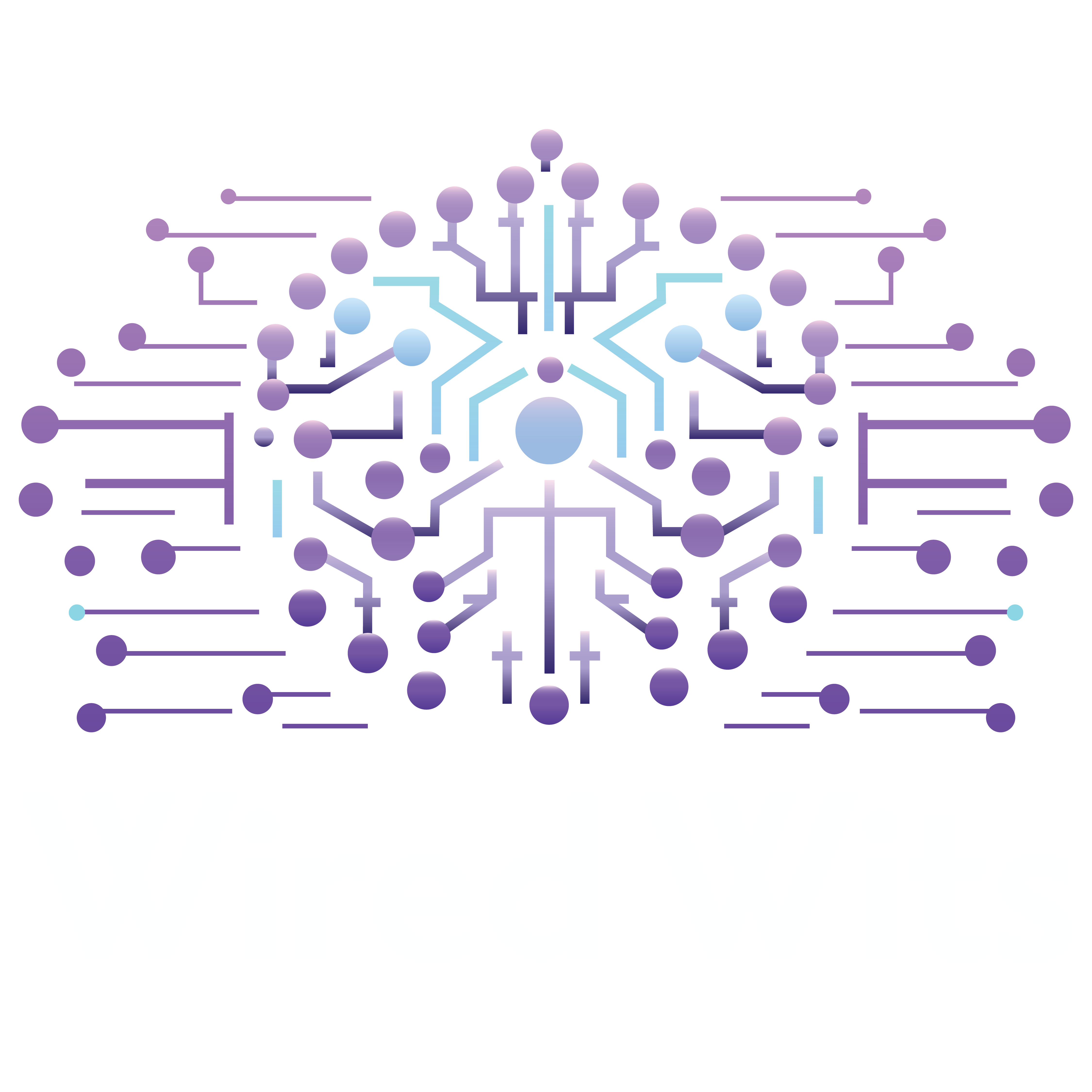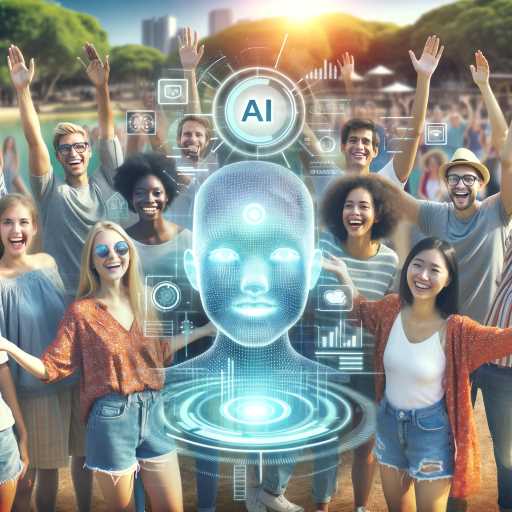Demystifying AI: The Journey Begins
Welcome to “Demystifying AI: Navigating the New Frontier of Intelligence,” where we embark on an enlightening journey into the world of AI. There are many layers to AI and given all the jargon associated with it, it can be intimidating and overwhelming. I won’t tell you that AI is not complex, quite frankly it is. However, the most complex aspects of AI are related to development, machine learning, data science, etc. However, those are just layers of the AI onion. You don’t have to know how to program, create an algorithm, or clean data to learn and participate in AI. Although, you may find it intriguing and decide to dig in further after this journey.
There are many ways to engage and profit during the AI revolution and it starts with demystifying AI. Here at Wired Wits, we believe that with the right guidance, anyone can unlock the mysteries of AI. This series is your companion in transforming AI jargon into everyday language, making the intimidating world of technology approachable and engaging. Together, we’ll peel back the layers of AI, revealing its potential in simple, understandable terms. So, let’s take the first step towards demystifying AI, turning curiosity into knowledge and apprehension into AI empowerment.
What is AI?
Artificial Intelligence, or AI, is essentially a branch of computer science that aims to create machines capable of intelligent behavior. It involves developing algorithms that allow computers to perform tasks that typically require human intellect, such as understanding language, recognizing patterns, and making decisions.
Interestingly, AI is not just a future concept; it’s part of our everyday lives. You’re already interacting with AI when you use your smartphone to get directions, receive movie suggestions from a streaming service, or encounter personalized ads online. These everyday instances show how AI seamlessly integrates into our routines, making the technology both relatable and less intimidating. You can take a look at our article AI in Entrepreneurship: The New Frontier of Business Innovation to see how it can be used in business.
History of AI: From Dreams to Daily Life

AI’s journey began in the mid-20th century with simple computers. These machines evolved into today’s smart devices that chat, solve problems, and even drive cars. Key moments include the first AI program in the 1950s and the chess match where AI beat chess grand champion, Gary Kasparov, in 1997. AI beating Kasparov, marked a moment where AI showcased not just calculation skills, but also strategic thinking, traditionally seen as a uniquely human trait. This event underscored AI’s potential to tackle complex, decision-based tasks. We’ll explore AI’s history more in a future article. Understanding its evolution is key to grasping the full scope of AI’s capabilities and potential impacts on our future.
Demystifying AI: Learning Like Humans Do
AI learns similarly to how people do, through a process called machine learning. It starts with basic rules and improves by analyzing data. When faced with new situations, AI uses past data to make predictions, learning from the outcomes to refine its responses. This continuous cycle of learning and adapting makes AI increasingly efficient. Think of it as learning to ride a bike—starting with uncertainty but gradually improving. We’ll dive deeper into machine learning in upcoming articles, unraveling how this core component powers AI’s capabilities.
Demystifying AI: Everyday Solutions at Your Fingertips
AI isn’t just a high-tech concept; it’s part of our daily routines, offering practical solutions in familiar settings:
- Smart Homes: Imagine your home knowing your preferences, like the perfect room temperature or when to dim the lights for a movie night. AI in smart thermostats and lighting systems learns from your habits to create a comfortable living environment without you lifting a finger.
- Healthcare Advances: AI is revolutionizing healthcare by predicting potential health issues before they become serious. For instance, wearable devices analyze your vitals in real-time, alerting you and your doctor to irregularities that could indicate underlying health conditions, enabling preventative care.
- Smarter Commutes: Traffic congestion is a daily hassle, but AI is making it smoother. Through real-time data analysis, AI optimizes traffic light timings, reducing unnecessary stops and making your commute faster and more fuel-efficient.
By highlighting these relatable examples, we see AI not as a daunting tech giant but as a helpful tool in our everyday lives, making the concept less intimidating and more accessible.
Empowering Your Future: The Value of AI Literacy
Understanding AI is key, not just for tech experts but for everyone. It’s about securing your spot in a fast-evolving job market, where AI skills can lead to promotions or entirely new career paths. Being AI-literate enhances your productivity, equips you to make informed decisions about using AI, and prevents misinformation. Most importantly, it transforms you from a passive consumer to an active creator in the digital world. Finally, this empowerment through AI literacy is crucial for personal and professional growth, urging us to embrace and explore AI’s potential together.
Join the AI Empowerment Movement

As we wrap up our journey into AI’s basics, remember this is just the beginning. Engage with us in the comments, join our community on Reddit at r/WiredWits, follow us on Twitter @WiredWits, and connect on Facebook. Got questions? Head over to the Wired Wits Watercooler for answers and your question might feature in our newsletter. Let’s embark on this path to AI literacy together, transforming curiosity into knowledge and empowerment.
AI Demystified: A Jargon-Free Glossary
Algorithm: Think of an algorithm like a recipe in a cookbook, but for solving problems or making decisions. Just as a recipe provides step-by-step instructions to prepare a dish, an algorithm gives a computer a specific set of instructions to perform a task or solve a problem. Whether it’s calculating the fastest route to your friend’s house or sorting your music playlist, algorithms guide the computer through the process, ensuring it arrives at the correct outcome.

